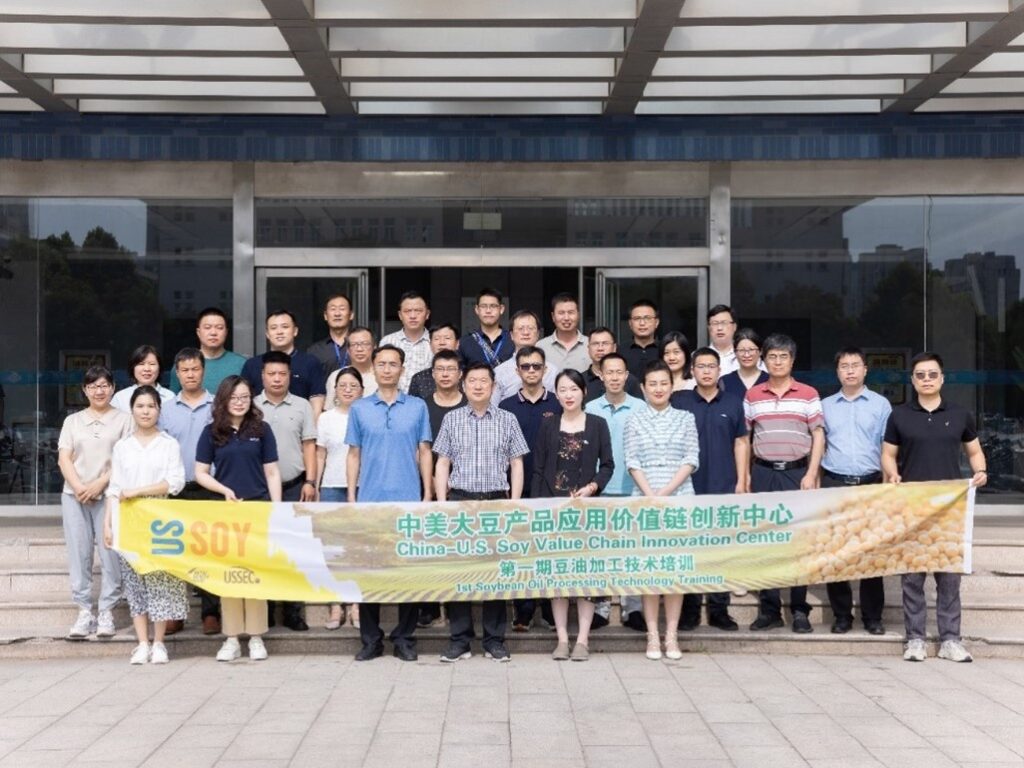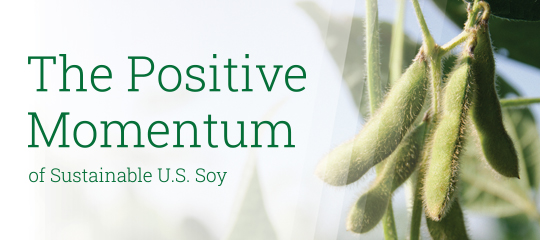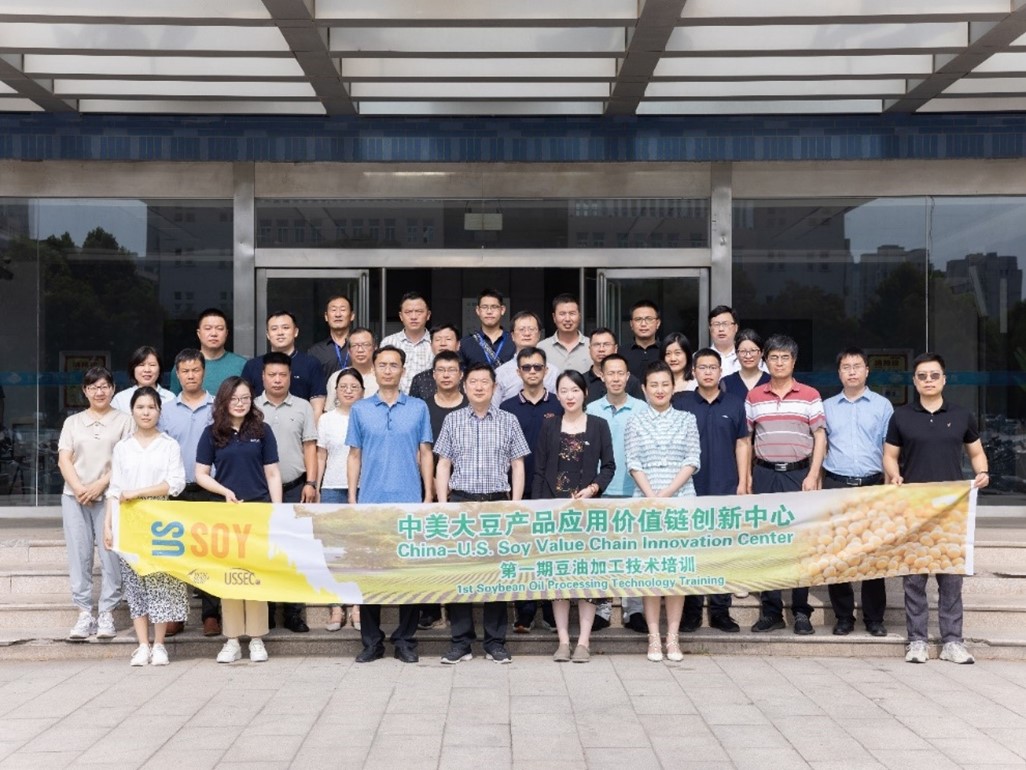
“Tell me and I forget. Teach me and I remember. Involve me and I learn.”
- Benjamin Franklin
USSEC applies this philosophy to educational opportunities designed to help soy users get the most from U.S. Soy. Training and continuing education from USSEC seek to engage participants so they learn to capture the full value of products using sustainable, high-quality U.S. Soy, all with support from the soy checkoff.
“From building skills for early-career professionals to certifying completion of advanced technical courses, we involve participants as they learn about U.S. Soy,” says Colby Pinkstone, senior director of strategic programs for USSEC. “Our commitment to ongoing education for customers strengthens relationships and contributes to growing a preference for U.S. Soy.”
USSEC offers learning programs that encourage practical application of new skills, foster networking within the industry and allow participants to explore the soy supply chain for themselves.
100 Training Programs and Counting
In September 2023, USSEC conducted the 100th training program through the Soy Excellence Center (SEC) in Egypt. These training programs expand the skills of early career professionals.
“Since the first SEC training program held in Egypt in September 2019, we have supported invaluable progress for thousands of participants,” Pinkstone says. “USSEC’s SECs provide a pathway for participants to achieve professional training certification and career advancement.”
Though training started with in-person meetings, it switched to virtual training during the global pandemic. While most trainees hail from Egypt, the largest regional market, others in the Middle East/North Asia, or MENA region participate. This SEC awards certifications to individuals from Algeria, Morocco, Saudi Arabia and Tunisia.
The SEC in Egypt is just one of the five regional SECs located around the world. In addition to poultry and aquaculture, training tracks include swine production, feed milling and soybean processing and refining technology.
The SEC program plans to meet the changing needs of regional U.S. Soy customers, as economic and currency issues impact the recent growth in many markets. For example, USSEC intends to focus more on marine aquaculture production in North Africa, because higher-value marine species appeal to the local industry and government to replace high-cost imports.
Soy Masters Programs
Comprehensive educational programs target different groups in specific sectors, offering a “Masters” designation to those who complete the programs.
“Our ‘Masters’ programs build relationships with customers, but they also build awareness of the benefits of U.S. Soy in circles influenced by program participants,” explains Will McNair, director of oil and soy foods for USSEC. “The intense education naturally creates brand ambassadors.”
USSEC began the Soybean Oil Masters program in Japan, and it has expanded to China, Korea and Taiwan, as well as countries in Southeast Asia and the Americas. The program seeks to improve the image of U.S. soybean oil by bringing together different links in the value chain and teaching them the about the journey of U.S. Soy from the farm to its end use as soybean oil.
The program targets participant from across the soybean oil value chain, including importers, crushers, refiners, consumer goods companies, the hospitality and institutional sectors, chef and nutritionists. They may understand their part of the value chain, but lack an appreciation for the rest of it.
“The courses for Soybean Oil Masters convey the advantages of U.S. soybean oil, including nutrition, culinary use, practical applications such as oxidization and fry life, nutritional value and more,” McNair says. “They also cover U.S. Soy production and sustainability.”
Successful completion of the online course and passing a test results in individuals being certified as “Soybean Oil Masters.” An award certification ceremony serves as an additional incentive.
More than 800 people have participated in the program since 2016, including 70% from the soy industry. The others are nutritionists, college students and food company employees. Nearly 70% of participants pass the exam and certify every year. McNair notes that future plans for the Soybean Oil Masters program includes broadening the target audience scope to include restaurants.
Some Soybean Oil Masters have been even more involved in learning, through the U.S. Soy International Oil Masters event, which allows customers a first-hand view of soy research and processing to on-farm production and end-use destinations. For example, in October 2022, a Soybean Oil Masters Trade Team visited farms, exporters and universities in Illinois and Indiana to learn more about the advantages of U.S. soybean oil and high oleic soybean oil. The trip participants become advocates for the sustainability of U.S. Soy.
In Korea, a similar educational program, Soy Food Masters, aims to increase the use of soy foods like tofu, soy sauce and soy milk in the hotel restaurant and institute (HRI) and home meal replacement (HMR) sectors of the food industry. The program started in 2022, and by 2023 193 selected Soy Food Masters served as ambassadors for soy foods processed from U.S. Soy food beans. Some members of the Soy Food Masters team visited Ohio in September 2023 to improve their understanding of the value of U.S. Soy food beans.
“USSEC also conducts soy food cooking classes to promote soy foods in the food service industry,” McNair says. “Involving dieticians in HRI and HMR sectors truly helps them learn the value of soy foods made from U.S. Soy for group meals.”
Soy Innovation Center Launches Training
USSEC strives to continue developing new educational opportunities that cater to customers in different markets. In contrast to the established SEC and Soy Masters programs, development of the U.S.-China Soy Value Chain Innovation Center, or SIC, in central China’s Henan province began in 2023.
The SIC held its first soybean oil processing technology training at Henan University of Technology in late June 2023. The program focused on soybean raw materials, oil processing, storage, transportation and product applications. More than 30 management and technical personnel from major oil processors attended.
“The course also highlighted the correlation between soybean quality and soybean oil refining,” McNair says. “Industry leaders and academic experts endorsed the quality advantages of U.S. Soy for edible oil.”
He adds that this new type of training in China demonstrates the long-term commitment of U.S. Soy to continuously improve industry services and provide valuable experiences.
Customer interest in the SECs and Soy Masters programs remains high, and the SIC is gaining traction. Offering and expanding educational programs reinforces USSEC’s commitment to them and their ability to realize the full value of U.S. Soy.
This story was partially funded by U.S. Soy farmers, their checkoff and the soy value chain.
# # #
Photos:
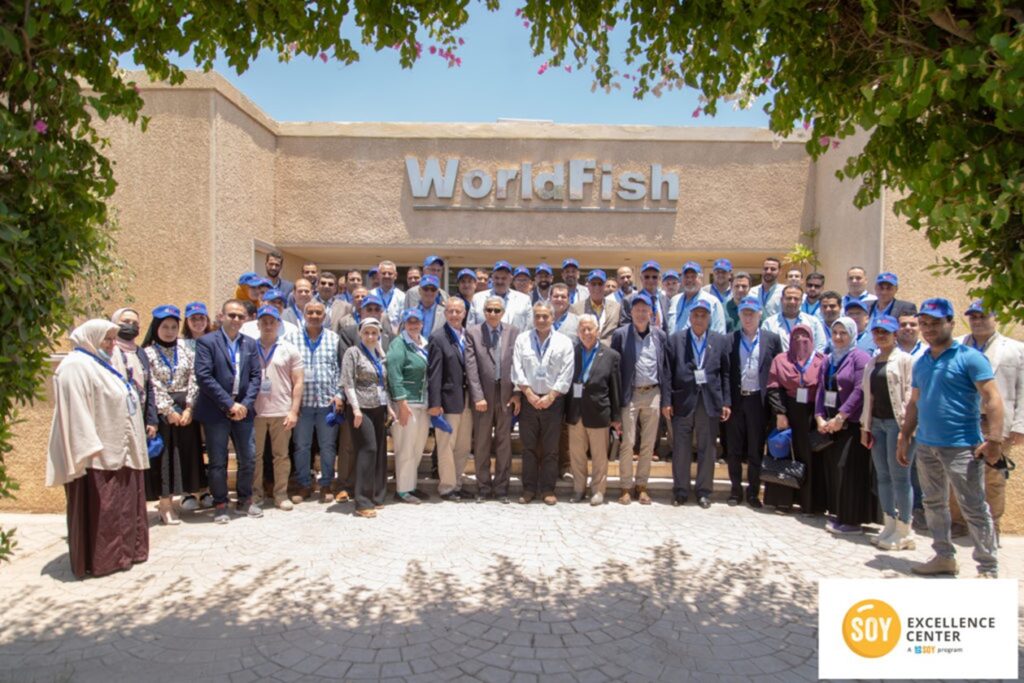
Trainees and steering committee members at an aquaculture program, hosted at Worldfish in Cairo in June, 2022. This training was just one of the more than 100 programs USSEC has hosted through the Soy Excellence Center in Egypt.
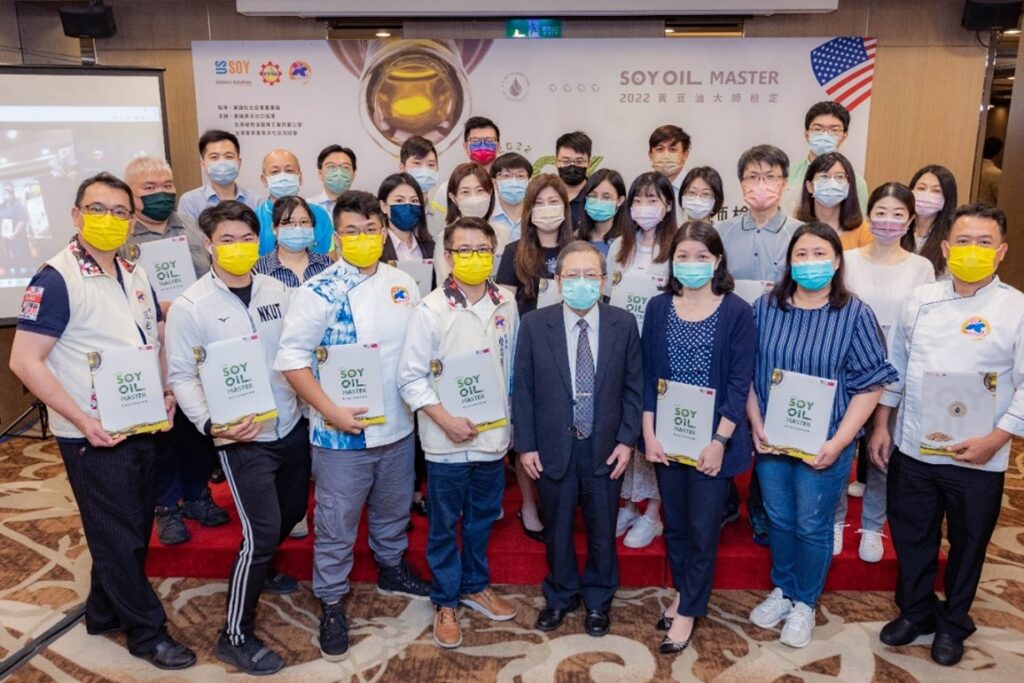
This group of Soybean Oil Masters just received their certificates at an award ceremony.
